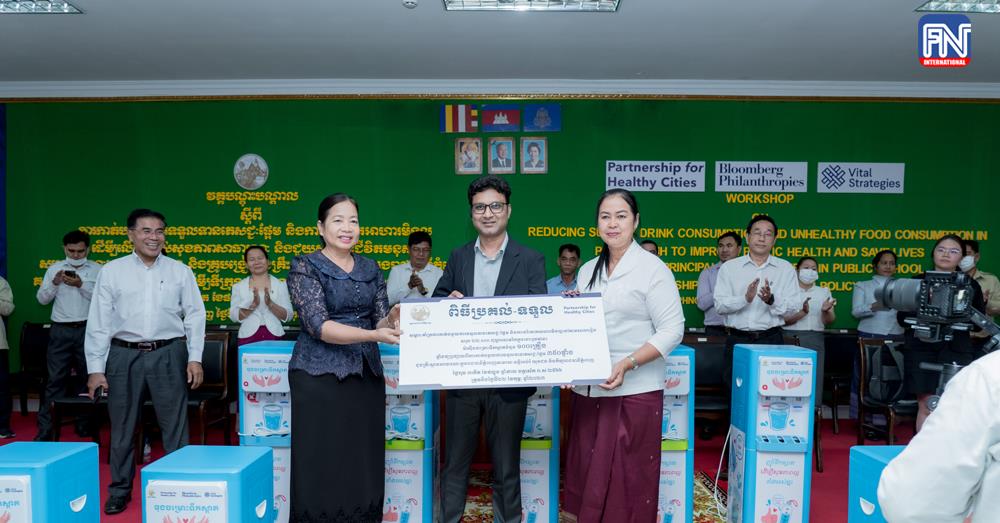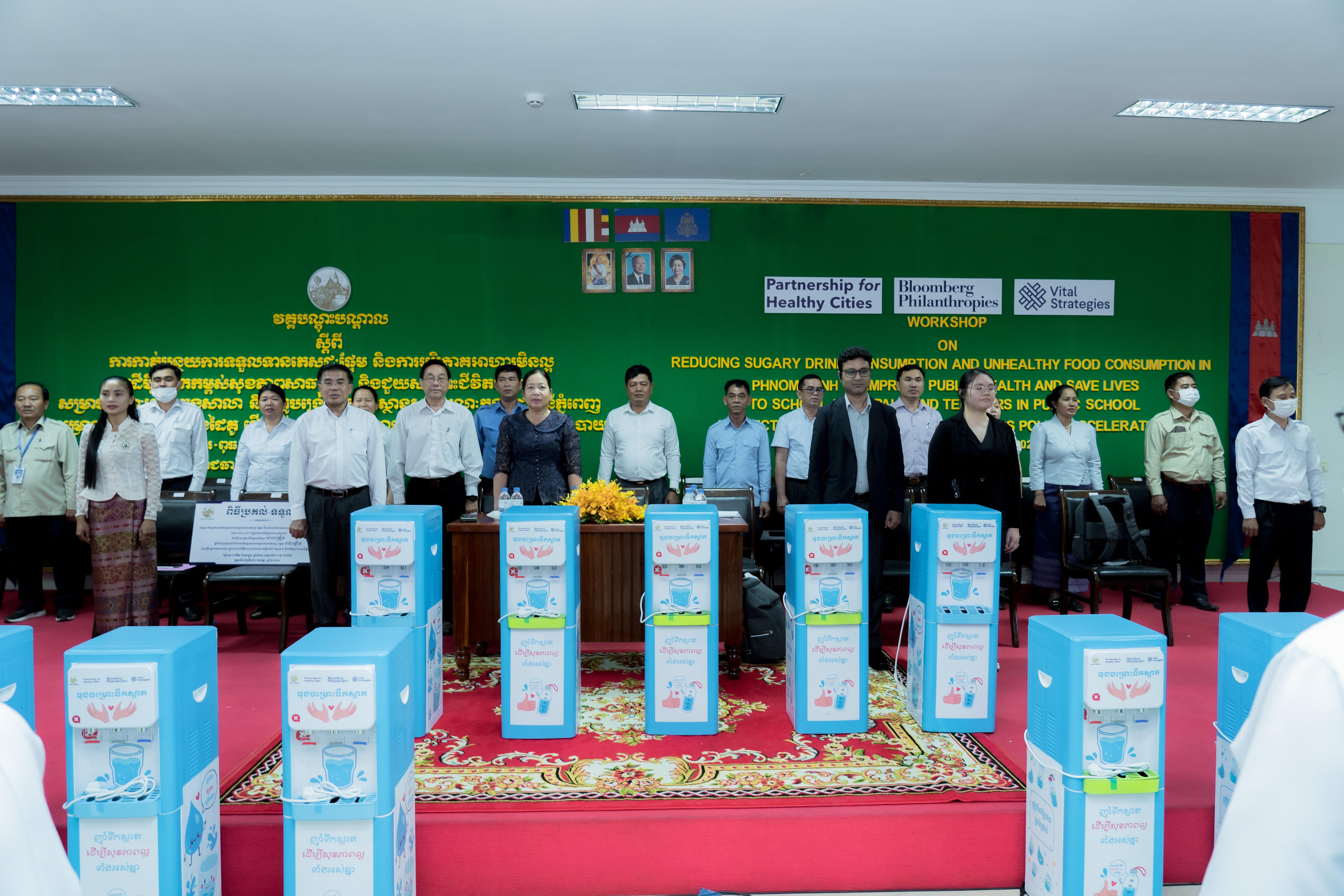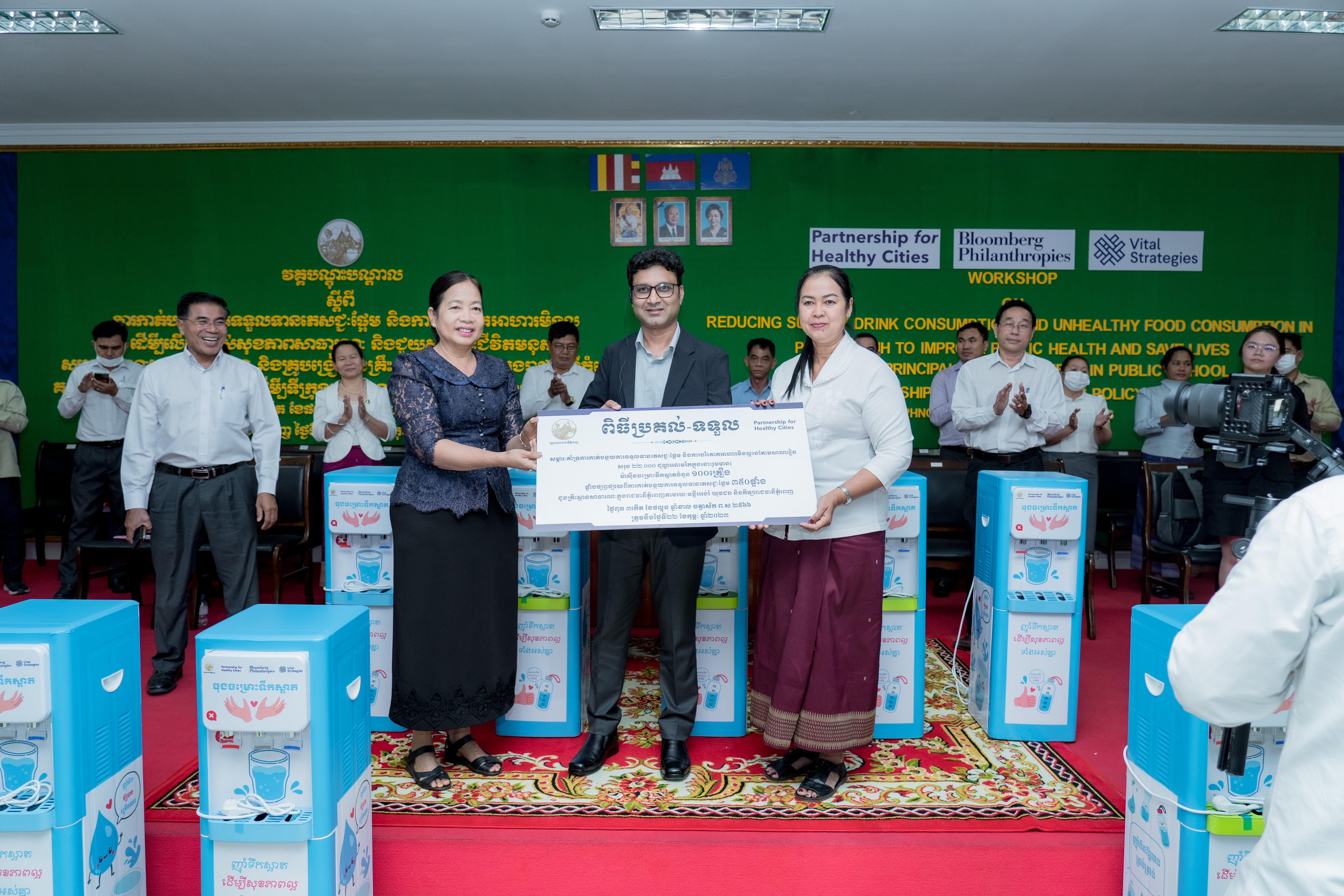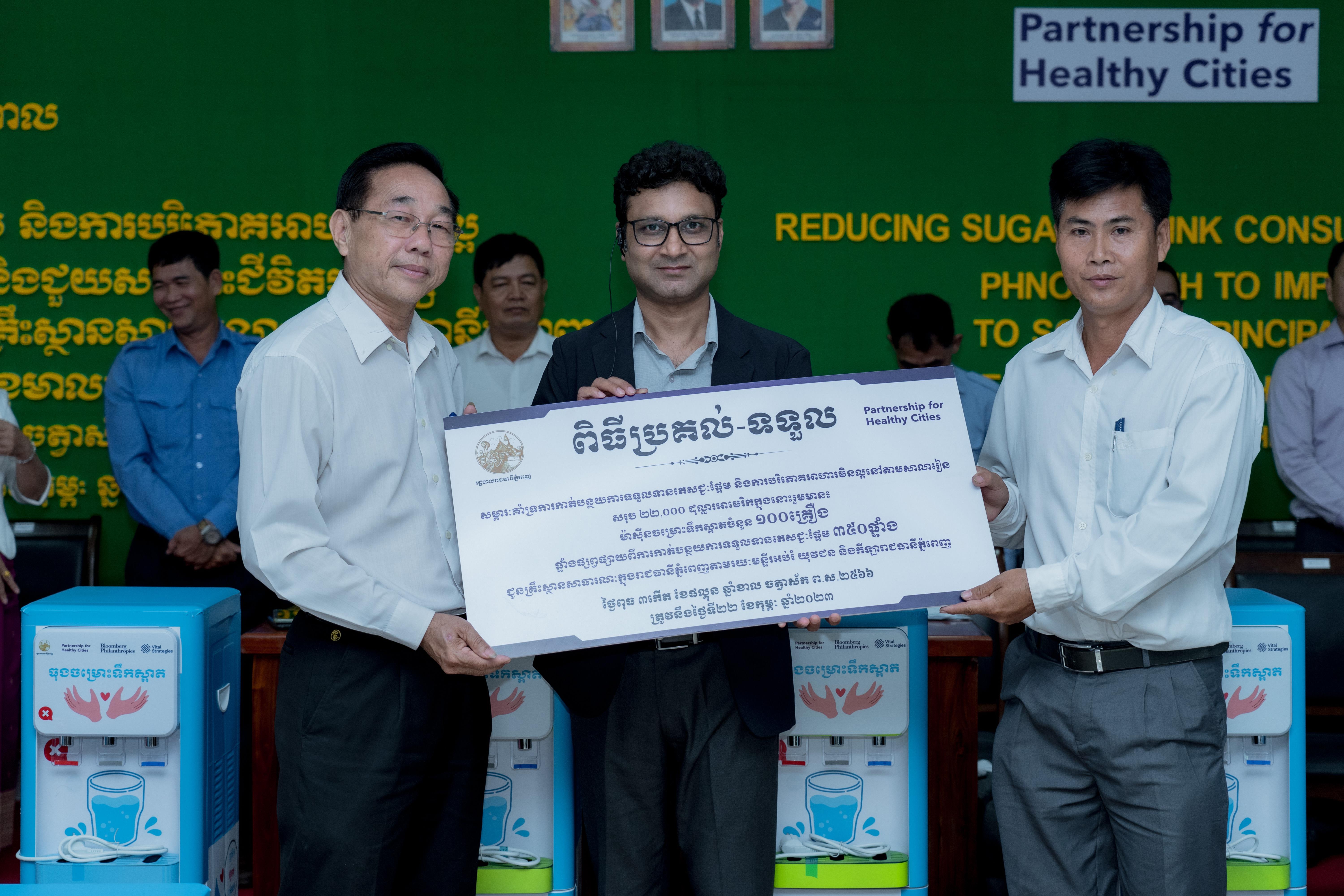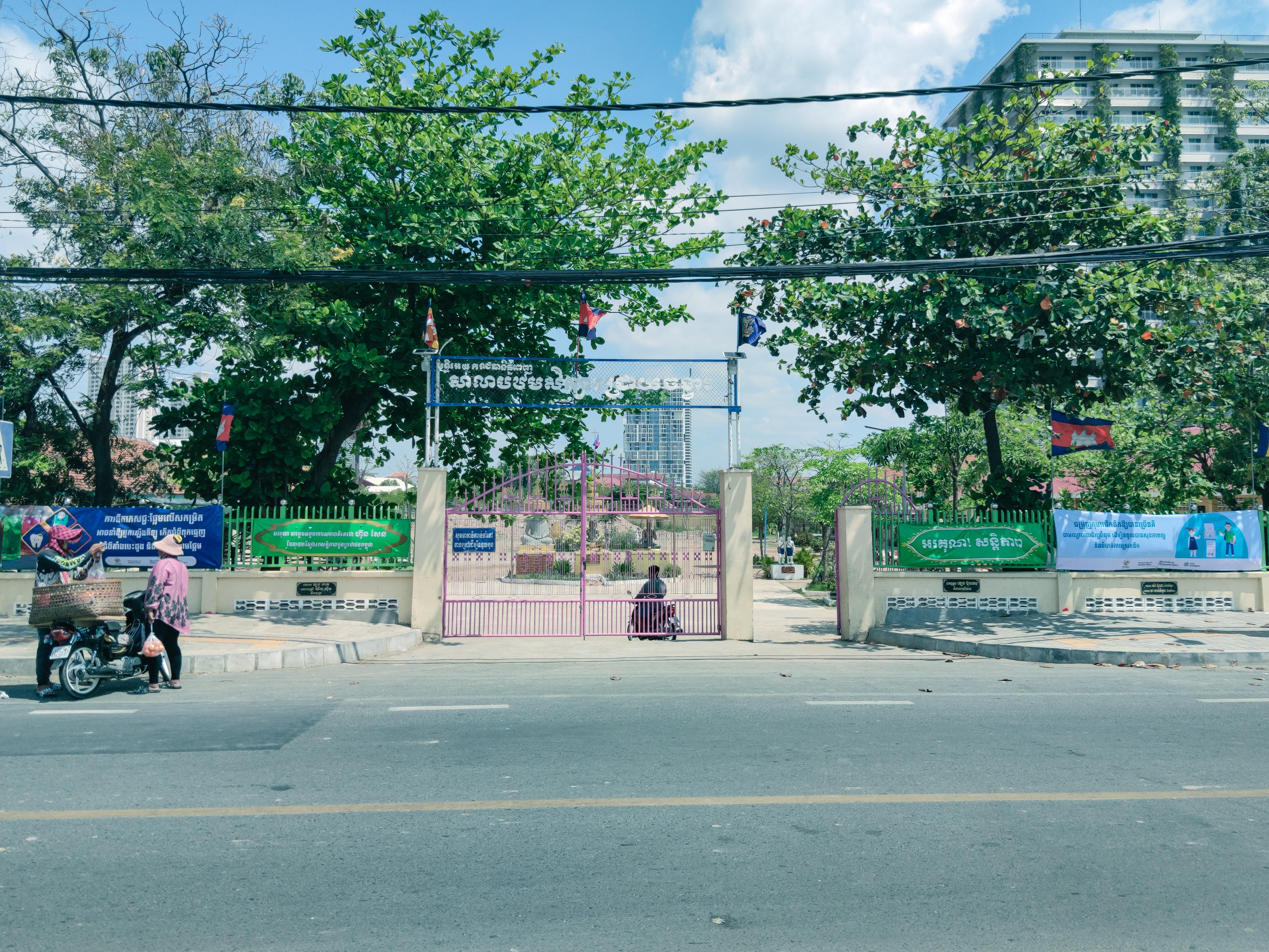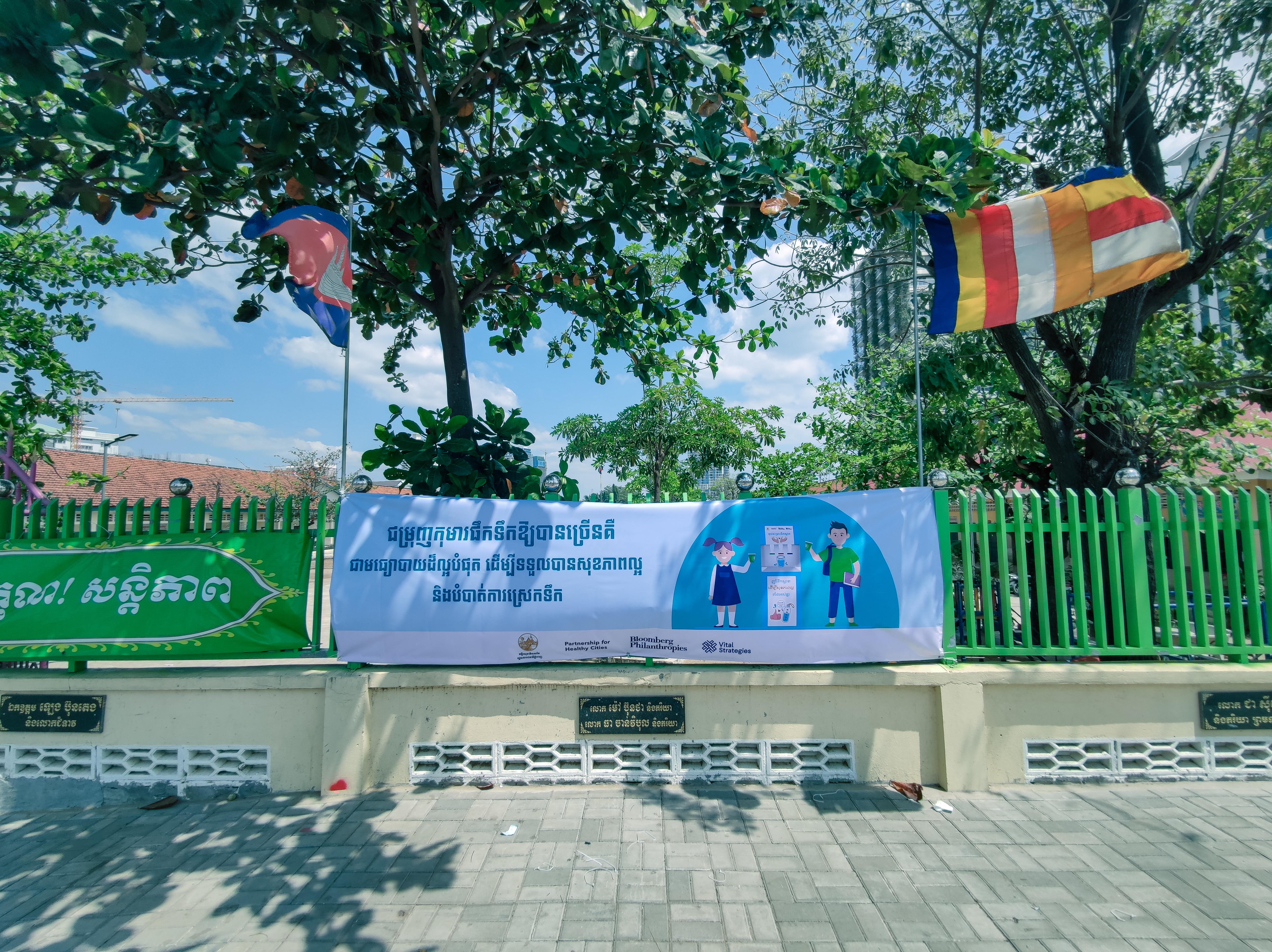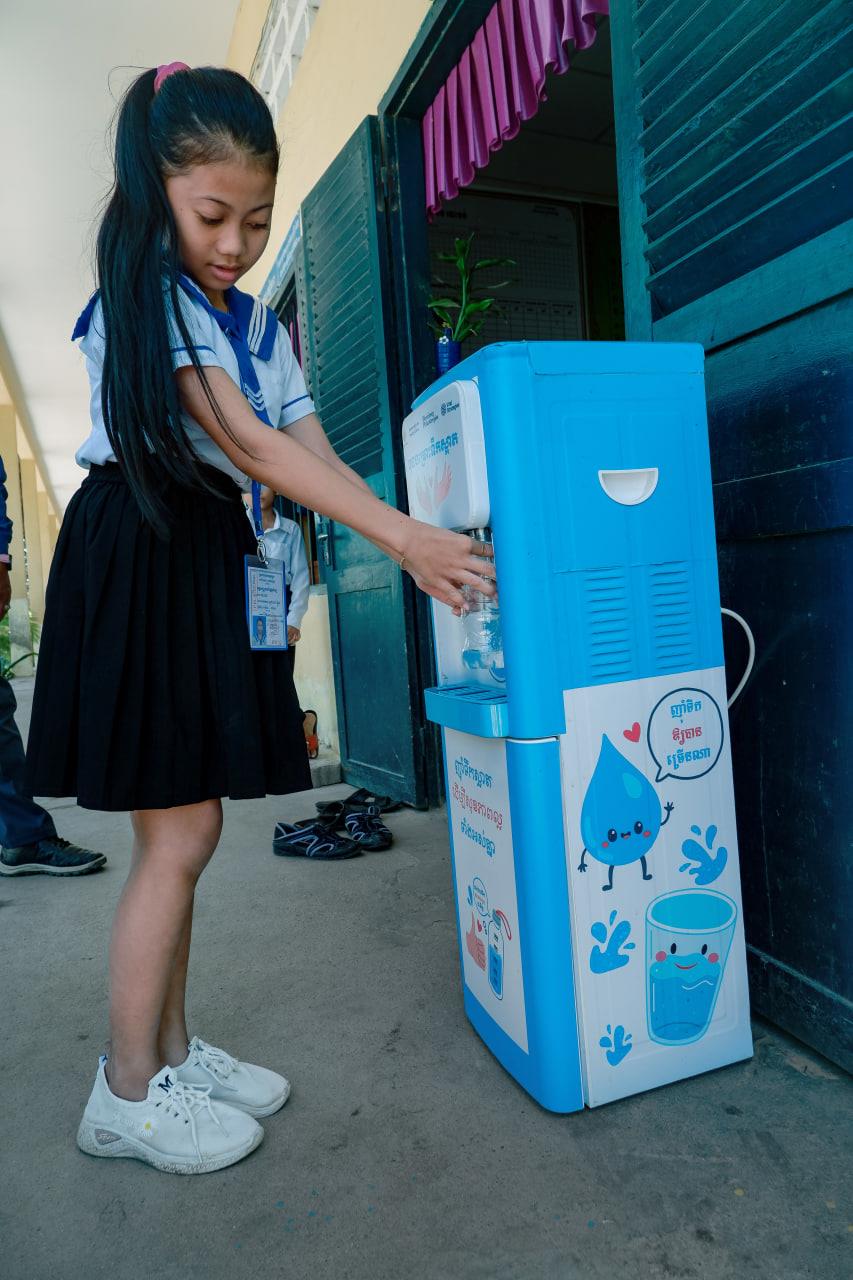Phnom Penh (FN), Feb. 28 – In order to address sugary drink and unhealthy food consumption in educational facilities, Phnom Penh City Hall will install 100 water dispensers across 76 primary schools over the next month, based on needs identified by the Department of Education, Youth, and Sports.
The effort is supported by the Partnership for Healthy Cities (https://cities4health.org/)’ Policy Accelerator, a program for cities to pursue public health improvements. The Partnership for Healthy Cities is a global network of 70 cities committed to saving lives by preventing non-communicable diseases (NCDs) and injuries that is supported by Bloomberg Philanthropies in partnership with the World Health Organization (WHO) and the global health organization Vital Strategies.
Phnom Penh has been working with the Partnership for Healthy Cities since 2017 on projects aimed at reducing sugary drink consumption (https://www.who.int/news-room/feature-stories/detail/reducing-the-consumption-of-sugary-drinks-in-phnom-penh-cambodia) and promoting healthier food environments. The city will continue this focus as part of its Policy Accelerator program activities which launched at a workshop this week. The event was presided by Phnom Penh City Hall and Vital Strategies and attended by 350 officials working in the fields of education, health and law enforcement.
The project forms part of a city-wide effort to support a national regulation issued by the Ministry of Education, Youth and Sports in 2019, which bans the sale of sugary drinks, snacks, alcohol, tobacco and expired foods in all public and private schools. Activities include: a series of four food policy workshops with city stakeholders over the next three months, procurement and installation of water dispensers, educational banners distributed to schools, an online communications campaign on healthy food and drink consumption, and the development of a ready-to-use guidance booklet schools and vendors.
The Policy Accelerator, developed by Vital Strategies, is a new offering from the Partnership that is supporting 13 cities in the network to create and adopt strong public health policies while also providing tools for future policymaking. Participants access technical assistance through a series of collaborative trainings and exchanges that are focused on data-driven decision-making, strategy, strategic communication and stakeholder engagement. The program also integrates resources and expertise from the WHO. The result is cities making meaningful progress to advance policies that reduce NCDs or injuries such as smoke-free laws or bans on advertising of sugary drinks and junk foods.
“Through the Partnership for Healthy Cities’ Policy Accelerator, local leaders are developing policies that directly tackle the public health crises of our time,” said Michael R. Bloomberg, founder of Bloomberg LP and Bloomberg Philanthropies and WHO Global Ambassador for Noncommunicable Diseases and Injuries. “Millions of people will benefit from these policies, and from the powerful exchange of experiences among cities that the Partnership encourages and supports.”
NCDs and injuries are responsible for eight in 10 deaths globally. With over half the global population now living in cities, urban leaders play a critical role in helping address these public health crises. Since 2017, cities in the Partnership for Healthy Cities network have undertaken proven, high-impact interventions (https://cities4health.org/) to significantly reduce NCDs and injuries. The Policy Accelerator builds on these efforts by supporting a select group of cities committed to pursuing an intensive, population-level policy focus. The current cohort of cities is the Partnership’s first, with a second cohort to be selected for the Policy Accelerator in March 2023.
The Partnership for Healthy Cities is one of the core programs under Michael Bloomberg’s role as WHO Global Ambassador for Noncommunicable Diseases and Injuries, a position he has held since 2016.
“Cities are places where health can either be nurtured, or destroyed," said Dr. Tedros Adhanom Ghebreyesus, WHO Director-General.
"WHO is committed to supporting mayors and other local leaders to protect people against all threats to health, including noncommunicable diseases and injuries. The Policy Accelerator is creating communities of practice to promote what works best for health policy at the local level.”
“Tackling NCDs and injuries requires big, systemic change” said José Luis Castro, President and CEO of Vital Strategies. “I am pleased to see the Partnership for Healthy Cities encouraging this focus on policy development. Cities are the drivers of public health, as we have been reminded of yet again during the pandemic.”
For more information on the Partnership for Healthy Cities, visit: https://cities4health.org
*About The Partnership for Healthy Cities:
The Partnership for Healthy Cities is a prestigious global network of 70 cities committed to saving lives by preventing noncommunicable diseases (NCDs) and injuries. Supported by Bloomberg Philanthropies in partnership with WHO and the global health organization Vital Strategies, the initiative enables cities around the world to deliver a high-impact policy or programmatic intervention to reduce NCDs and injuries in their communities. For more information, visit https://cities4health.org or https://partnershipforhealthycities.bloomberg.org (https://partnershipforhealthycities.bloomberg.org/)/
*About the Policy Accelerator:
The Policy Accelerator, created by Vital Strategies, is a policy development process designed for governments seeking sustainable public health change. Participants gain skills on assessing a particular public health challenge, legal jurisdiction, strategic advocacy, leadership and more, through a series of trainings and collaborations—and advance policies through to implementation. For more information, visit https://www.vitalstrategies.org/policy-accelerator (https://www.vitalstrategies.org/policy-accelerator/)/
=FRESH NEWS
